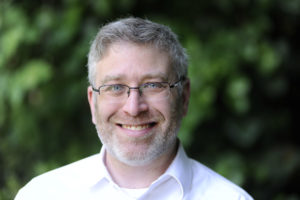Commentary on Parshat Vaera (Exodus 6:2 – 9:35)
Who deserves human rights? Even the Torah has its blind spots.
The Torah portion VaEra describes an escalating cycle. As YHWH predicts, Moses and Aaron confront Pharaoh and he refuses to free the Israelites. A plague strikes, and Pharaoh relents. The plague is removed by divine intervention, Pharaoh’s heart is hardened (or “strengthened,” depending on the verse), he refuses again, and the cycle restarts.
This pattern of plague, permission, and prohibition is familiar to us, recited at the Passover seder and sometimes mocked with rubber frogs and ping-pong balls for hail. Like many rabbis, I consider this a story rather than history, but even thus the plagues trouble me and I do not mock them. The Torah text itself shows little if any sympathy for the ordinary Egyptians who suffer from Pharaoh’s stubbornness. They do not vote for Pharaoh nor do they have meaningful input on his choices, yet they suffer the consequences; later plagues explicitly strike them and exempt Israelites.
Sign up to receive Torah from T’ruah in your inbox each week.
Yes, the Egyptians are complicit in a corrupt system of Hebrew slavery, but even those with “Egyptian privilege” (or today American White or Israeli Jewish privilege) have rights. Ultimately only a plague that strikes Pharaoh directly by killing his own son gets results. One might ask whether all that prior suffering was worth it, or whether all the other Egyptian firstborns needed to die. The plagues were certainly useful for YHWH’s reputation (as YHWH itself claims), but not effective at freeing slaves.
The key issue is how best to effect change. If a nation’s leadership violates the human rights of refugees, immigrants, or other vulnerable populations, do we cause suffering to citizens as a whole, or can we target the leadership alone? Iraq sanctions in the 1990s caused real human suffering among ordinary Iraqis even as Saddam Hussein maintained his brutal dictatorship in high style. Do Israeli restrictions on Gaza target Hamas, or are they a plague striking ordinary Palestinians? Would boycotting liberal Israeli academics really change Israeli government policy? Or do these blunt tactics cause suffering and restrict the rights of those with limited say in what their leadership chooses? Sometimes a broad plague simply hardens resistance, in Pharaohs and in ordinary people.
Find more commentaries on Parshat Vaera.
Human rights are universal. They do not derive from one particular god or religious tradition, and they do not apply to only one population. We would free everyone, and not at the expense of others. Alas, it is much easier to see the suffering and advocate for the rights of our own people than to consider the other, particularly our “enemy.” When Kenneth Roth, executive director of Human Rights Watch, responded on Twitter to a West Bank shooting by noting that civilian Israeli settlers are not military targets, he received disheartening pushback. When Jews show sympathy for Palestinian human rights, they are often accused of betraying Israel’s security (as if one cannot support both).
 Is it fair to compare Egyptians under Pharaoh to White Americans under Trump or even Israeli Jews under Netanyahu? All three are privileged compared to disadvantaged minorities and can have trouble seeing the rights of others. The difference is that while the ancient Egyptians have no power to affect their government, we moderns do have that power if we are aware of the problem, and if we are willing to act. Exodus 6:9 offers us a hint of how to get there. After receiving his divine promise, Moses first speaks to the Israelites, who do not believe him “mikotzer ruakh u’me-avodah kasha – because of shortness of spirit and difficult work.” They cannot even imagine that such a promise is possible because of their suffering. Even Moses exclaims, “if the Israelites would not listen to me, how will Pharaoh?”
Is it fair to compare Egyptians under Pharaoh to White Americans under Trump or even Israeli Jews under Netanyahu? All three are privileged compared to disadvantaged minorities and can have trouble seeing the rights of others. The difference is that while the ancient Egyptians have no power to affect their government, we moderns do have that power if we are aware of the problem, and if we are willing to act. Exodus 6:9 offers us a hint of how to get there. After receiving his divine promise, Moses first speaks to the Israelites, who do not believe him “mikotzer ruakh u’me-avodah kasha – because of shortness of spirit and difficult work.” They cannot even imagine that such a promise is possible because of their suffering. Even Moses exclaims, “if the Israelites would not listen to me, how will Pharaoh?”
We create change by inspiring people to widen their spirit. When we feel oppressed and under siege, we narrow our concerns and contract into ourselves; we are “kotzer ruakh” and it is difficult to listen beyond our own needs. If we can transcend our narrow perspective, as Mitzrayim (the Hebrew name for Egypt) is often interpreted (tzar = narrow), we can see the human face of the other. Our goal is not to avoid the plague of rights violation just for ourselves, but rather to end that plague for everyone.
Adam Chalom is the Dean for North America of the International Institute for Secular Humanistic Judaism. He also serves as Rabbi of Kol Hadash Humanistic Congregation in north suburban Chicago.


